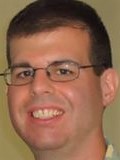Librarians Learn How They Can Support Genealogical Researchers
By Rich Wiest
Two speakers – a state librarian and an independent researcher – provided tips on supporting genealogical researchers, as part of the 2019 Adult Services Forum, sponsored by the Reference Section of the New Jersey Library Association, held Oct. 22, 2019, at the Holmdel Library and Learning Center.
The session’s first speaker was Regina Fitzpatrick, the Genealogy Librarian at the New Jersey State Library (NJSL).
She started by discussing how she tried to improve online access to information on genetic genealogy by putting together a resource guide. It began when she received a phone call from a patron who found that her grandfather was not her father’s biological relation. Ms. Fitzpatrick tried a number of sources, including articles, consumer reports, and online resources. Unfortunately, she could not find enough information to create the guide.
The NJSL has 18,000 items that are open to those who are interested in genealogical research. They include primary documents (directories and newspapers), published books, and databases (Ancestry, HeritageQuest, NewsBank). The most-used area is the collection of family histories. It makes up a third of the collection and can be searched via the NJSL’s online catalog.
Ms. Fitzpatrick provided ways of how she, as a librarian, can help patrons with genealogy issues. Some of these include helping patrons find FAQ resources, directing them to consumer reports and articles, and putting them in touch with a professional genealogist.
She also listed things that a librarian cannot do when assisting patrons. They include advising patrons on how to handle surprises that may come up in their DNA results, helping them set up or manage their profile, and answering technical questions regarding a genealogical website.
Next up was Seth J. Bookey, a researcher at Fox News and adjunct librarian at Lehman College, who began researching his own family history in the mid-1990s. There are three types of DNA matches: autosomal (tests both sides), Y DNA (test paternal line), and mitochondrial DNA (tests maternal line).
 Two items you receive along with your matches are shared DNA segments and centiMorgans. Shared DNA segments show how many segments are identical between you and your match. The longer the segment, the longer it was likely inherited from a common ancestor. CentiMorgans is a measure of the DNA shared with a match.
Two items you receive along with your matches are shared DNA segments and centiMorgans. Shared DNA segments show how many segments are identical between you and your match. The longer the segment, the longer it was likely inherited from a common ancestor. CentiMorgans is a measure of the DNA shared with a match.
This was a fascinating session. The New Jersey State Library offers some great resources on genealogy. It was helpful finding out what a librarian can and can’t do when offering genealogical help.
Mr. Bookey’s part of the presentation was also informative. He provided a lot of insight into taking a test and what to look for when getting the results.
Rich Wiest is a Librarian at the Glassboro Library, a branch of the Gloucester County Library System.